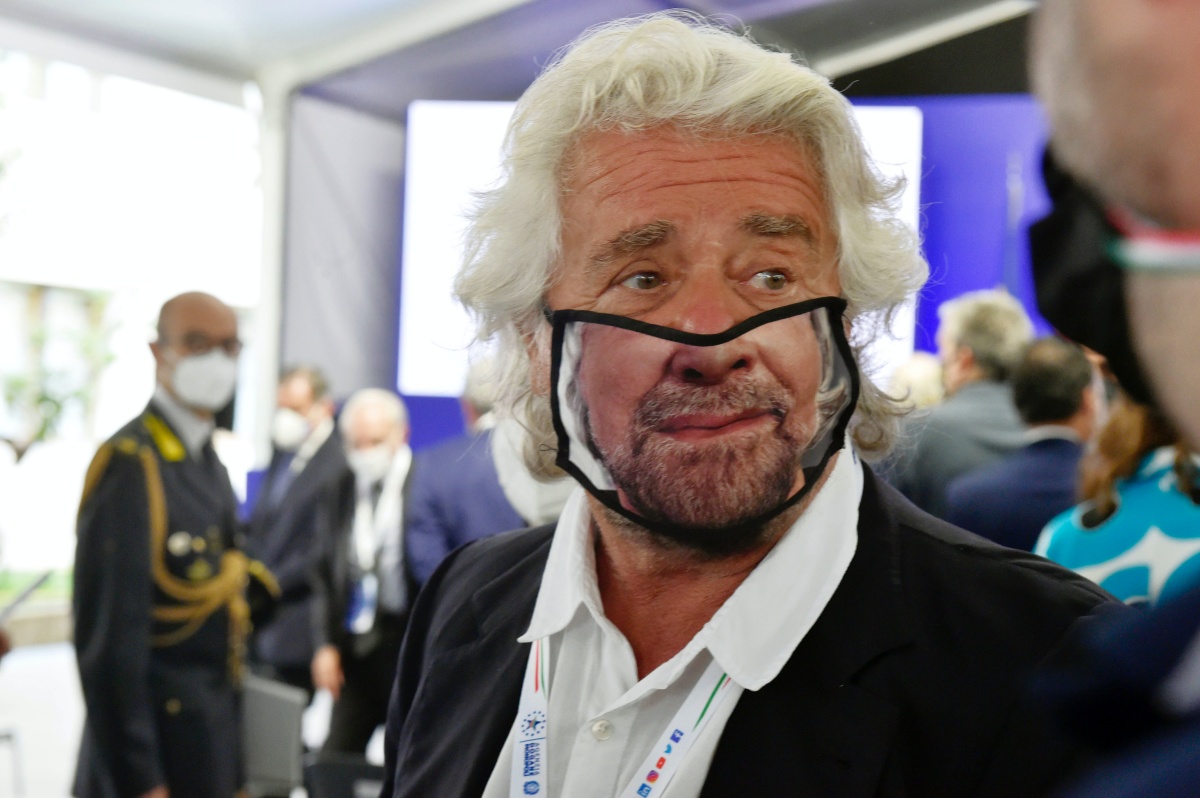The anti-establishment, populist force that swept the polls in 2018 is about to enter its third different governing coalition in three years. How is it coping?
The Five Star Movement was the biggest political force to emerge from Italy’s 2018 elections. The brainchild of comedian Beppe Grillo and the late web designer Gianroberto Casaleggio, the Movement was born in the aftermath of the 2008 financial crisis and rode on anti-establishment, populist, welfarist waves to become Italy’s biggest party in Parliament with 31% of total votes.
Two governments later – and having just approved their third –, the 5SM looks severely beaten up. Its polling numbers have more than halved, as many original supporters feel betrayed by the shifts in positions and alliances of the party that once marketed itself as an uncompromising, post-political force for integrity. First, they were senior partners of a right-wing nationalist government, then they joined forces with the pro-European left.
That second government eventually collapsed, and President Sergio Mattarella called on Mario Draghi, the former head of the European Central Bank who is widely credited with having saved the eurozone, to build Italy’s next government. That caused immense stomach-ache to 5SM leaders, who initially swore they would never accept him as PM, because one of the Movement’s original tenets was a Euroscepticism-laden deep distrust for technocrats.
What’s more, the centre-right party led by Silvio Berlusconi (Forza Italia) had announced its support for Mr Draghi’s government, as had the right-wing League (with a surprising EU-turn), both of which had been at the opposition. Therefore, the 5SM was not needed to form a majority – and governing with Mr Berlusconi would have negated a decade of fiery rhetoric against him, whom they depicted as the epitome of the corrupt élite.
But saying no to the new government would have meant a significant loss of institutional power. This prompted Mr Grillo, who had progressively distanced himself from his creature, to travel to Rome and attend talks with Mr Draghi in his capacity as “guarantor” of the Movement, which has been led by a caretaker leader for the past year. The 5S leadership ended up convincing most of its MPs to fall in line and enter the nascent government.
That was a tormented process. Davide Casaleggio, son of the late co-founder, runs a “direct democracy” private online platform where party members can vote on key issues, binding the Movement’s leaders to their will. The question that appeared on Thursday read (literally): “Do you agree that the Movement supports a technical-political government: that establishes a super-Ministry for the Ecological Transition and that defends the main results achieved by the Movement, together with the other political forces indicated by the appointed President Mario Draghi?”
60% of respondents agreed, 40% did not – the closest call in the history of the platform. Many accused the question’s wording of bias as it cast the 5SM’s entrance in the new majority in a positive light. A few key figures within the Movement, the leading theorist Alessandro Di Battista and the former transport minister Danilo Toninelli, announced they would quit the party. A few dozen MPs are expected to follow suit.
That likely schism demonstrates the party’s difficulties. Its original ideals have been spent or reneged, its hard-liner stances have been damaged by all sorts of alliances and deals with other political forces. Its current ideological line is unclear, and the internal congress held in December to elect a new leading committee and flesh out the official line yielded no results. As a result, the views of 5SM MPs are fragmented and often inconsistent with each other.
Most of them will support Mr Draghi’s government, which is essentially a “national unity” technocratic force to ferry Italy out of the pandemic and the economic downfall it caused. It is unclear what direction the party will take in the near future. But the star that shone so bright a few years back is flickering.








